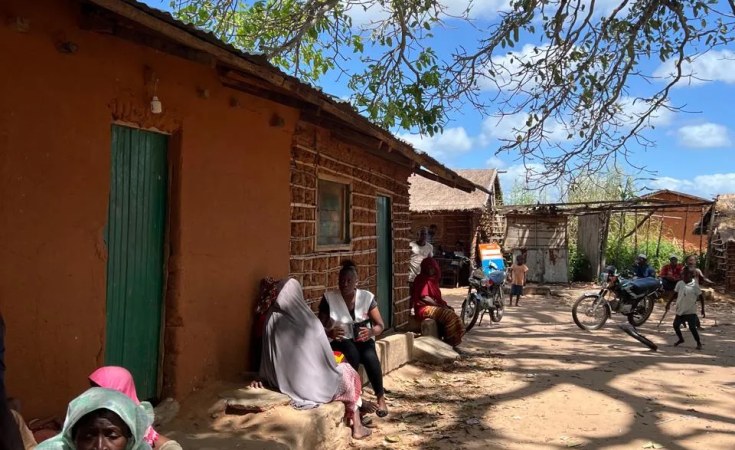Nearly 100 people died in the accident, including at least 55 children
Doctors Without Borders (MSF), in collaboration with the Psychological Private Network, has provided psychological first aid to the families of the victims of the shipwreck that left nearly 100 people dead on 7 April in Nampula province, northern Mozambique. In addition, the MSF team offered health promotion training to 15 community leaders.
The shipwreck victims were reportedly trying to flee the mainland to an island in Nampula, Mozambique, due to panic over rumours of a cholera outbreak in their communities when the tragedy struck. According to the local authorities, the boat was overcrowded, with about 130 people on board. At least 55 children died in this tragic incident. The number of victims could be even higher, as there are still people missing.
Providing support to victims and relatives of the deceased
MSF teams visited three communities of Quivulane, Muanangome and Necotia in the hard-to-reach area of Lunga, where the families of the victims live. The communities are isolated from the rest of Nampula province as a result of damage caused by cyclone Gombe, where the storm destroyed several roads connecting to Lunga. There is no public transport, and the communities use boats as the primary mode of transport. They are far from any healthcare facility, with the nearest being 14 kilometres away. For five days, the MSF team held more than 20 sessions, including individual and group sessions, to support them with the tragedy.
Narrating the ordeal, Ana Mafalda Chissano, MSF’s nurse activity manager, explained that some families lost nearly their entire family in this incident. In one family, 14 out of 17 children died, while another woman lost her daughter and six grandchildren, and others lost all friends. The presence of very few women and children was notable in the communities, as they were the ones who died the most. Many are still traumatised by the event and are struggling to cope. Some have nightmares, while others are struggling to eat or sleep, saying they repeatedly have visions of waves, the sunset at the time of the accident, dead bodies and the faces of their relatives who died in the accident each time they try to sleep.
Dispelling rumours about cholera in Mozambique
Ana vividly remembers a boy who guided the MSF team to the homes of people who had lost loved ones so they could get support from MSF.
“The boy knew how many friends and siblings he had lost”, said Ana.
“When we arrived, the adults in the community told us that only three families had been affected by the situation and were not very open. But then, a boy came to us. He was between 6 and 7 years old. He took us from house to house, showing us where the families of the people who had died lived, "added Ana.
“I wondered what might be going on in that child's mind… It's a very traumatic. He knew how many friends, how many cousins, how many siblings he had lost. Therefore, he knew how to point out: 'in that house one person died, in that house another person died'".
Claudia Colcerniani, MSF mental health activity manager, was proud of what the team managed to accomplish in a few days as well as the resilience shown by the Lunga community. “Just expressing one’s feelings and having someone listen to them was a crucial and a first step”, said Claudia. It would take time for some community members to open up and share their experiences since it is still fresh in their minds.The team believes the community still needs more support. In addition, our team identified the need to provide information about cholera and other diseases to the community to dispel rumours and myths about cholera to avoid similar situations in the future.
Cholera is endemic in Mozambique
Cholera is endemic in Mozambique, and it is still going on in the country with overall 15,145 cases from October 2023 to 7th April 2024, according to the Ministry of Health (MISAU) data. The worst affected region in Mozambique is Nampula province, which accounts for a third of all cases (5,112 cholera cases).
We call on other actors to support the community in Lunga with healthcare, mental health and other basic health services.
MSF has been in Mozambique for 40 years. We are responding to emergencies, including disease outbreaks and providing care to people with advanced HIV while also working in the conflict-ridden Cabo-Delgado province. MSF works in Nampula in collaboration with the Mozambican Ministry of Health to improve prevention and treatment activities for neglected and vector-borne tropical diseases, as well as surveillance and preparedness for emergencies such as cholera outbreaks and natural disasters.


